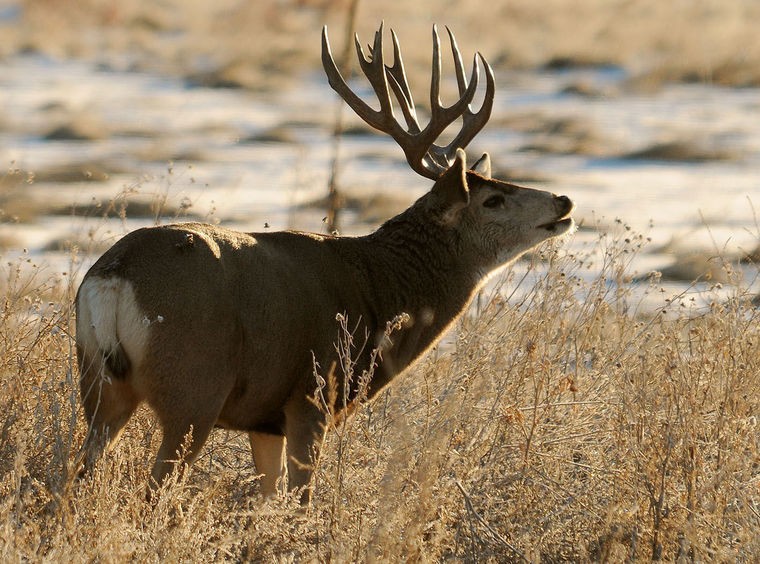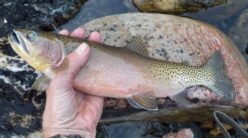BOISE — Idaho sold out its nonresident deer tags last year for the first time since 2008 and nearly emptied its inventory of nonresident elk tags, Idaho Department of Fish and Game Director Virgil Moore told state budget lawmakers on Monday.
“Nonresidents provide a little over half of all the license funds in this state, so that component is very important,” Moore said during Fish and Games budget presentation to the Idaho Legislature’s Joint Finance-Appropriations Committee.
The increased 2016 out-of-state deer and elk tag sales illustrates a continuing trend of rebounding revenues, Moore said during an interview. The director noted that Idaho nonresident tag sales were deeply affected by a 2009 price increase — during the Great Recession — for “nonresident products” offered by Fish and Game.
“Numbers just tanked,” Moore said. “And this is the first year we’ve recovered all of that back. So really it’s the first year we’ve realized the benefits of a fee increase on nonresidents that occurred in 2009. And now that we’ve achieved that (deer tag nonresident sellout), we’ll level out (on revenue) because we can’t sell any more of that product. It’s maxed out.”
The department sold its maximum 17,000 over-the-counter nonresident deer tags in 2016. It also came within 200 of emptying out the maximum 12,800 over-the-counter nonresident elk tags, department Deputy Director Ed Schriever said.
Idaho resident hunting and fishing license fees were last increased in 2005, Moore said.
Moore said Fish and Game is working on revised draft legislation aimed at increasing purchases of fishing and wildlife licenses in 2017.
The proposal would offer a price lock for buying a license within the structure of a five-year offering. The draft legislation — which first needs the Idaho Fish and Game Commission’s approval — would increase the cost of resident fish and wildlife licenses, according to Moore.
“We’re looking at about a 20 percent increase in most of those products,” he said. “It ranges from $1 to $6 depending on the product you’re buying.”
Moore said the possible price lock program would be the first of a kind.
“No one has tried this particular experiment nationally, so we don’t know how it’s gonna work,” he said.
Idaho collected $38.7 million in hunting and fishing license fees for the 2016 state budget year that ended June 30.
Comparatively, it had gathered $39 million in revenue from those licenses in 2007, Moore said. But the director also urged caution when considering the higher numbers, which he said may decrease because of external factors.
It can be affected by factors such as wildfires and the national economy.



